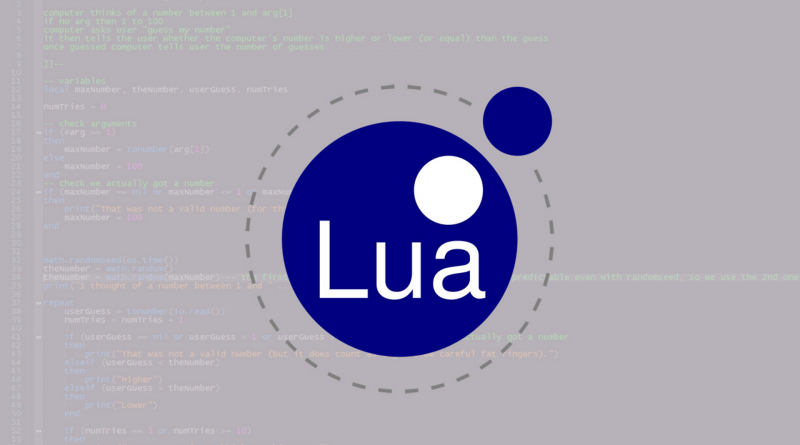LUA Programming Language
Welcome to Lua.
Lua programming language is a powerful and fast programming language that is easy to learn and use and to embed into your application.
Lua Programming Language is designed to be a lightweight embeddable scripting language. In other words, it is used for all sorts of applications, from games to web applications and image processing.
Moreover, in order to run Lua Programming Language programs on your computer, you’ll need a standalone Lua interpreter and perhaps some additional Lua libraries. For instance, use your favorite text editor to write your Lua programs. Additionally, make sure to save your programs as plain text. You can fork Lua from ClayDesk GitHub repository.
The main changes introduced in Lua 5.3
- Similarly, integers (64-bit by default)
- official support for 32-bit numbers
- bitwise operators
- basic utf-8 support
- functions for packing and unpacking values
Additionally, see below in Lua 5.3, for example:
Language
- Moreover, userdata can have any Lua value as uservalue
- floor division
- more flexible rules for some metamethods
Libraries
ipairsand the table library respect metamethods- strip option in
string.dump - table library respects meta methods. Below are new functions in Lua.
table.movestring.packstring.unpackstring.packsize
C API
- Subsequently, simpler API for continuation functions in C
lua_gettableand similar functions return type of resulted value- strip option in
lua_dump. In addition, below are some new functions. lua_getilua_setilua_isyieldablelua_numbertointegerlua_rotatelua_stringtonumber
Lua standalone interpreter
- can be used as calculator; no need to prefix with ‘=’
argtable available to all code
You can download Lua here.
For you to implement Lua in pure ANSI C and compiles unmodified in all platforms that have an ANSI C compiler. Lua also compiles cleanly as C++.
What do I call software derived from Lua?
Lua is designed for your specific domain. When the time comes to distribute your software two questions may arise: “May I still call the language inside my software Lua?” and “May I call it something else?”.
For instance, if the syntax and the semantics of the language (that is, the parser and the virtual machine) remain the same, then the language is still Lua. Moreover, if you simply add new libraries, or even replace the standard Lua libraries with your own libraries, the language is still the same, and you don’t need to (and probably shouldn’t) give it a completely different name.
Similarly, if you have changed the syntax or the semantics of the language, then it’s probably a minor extension and you’ll probably benefit from calling your language a Lua variant, so that you can refer users to existing Lua documentation and community, with the caveats relating to your extension of the language.




